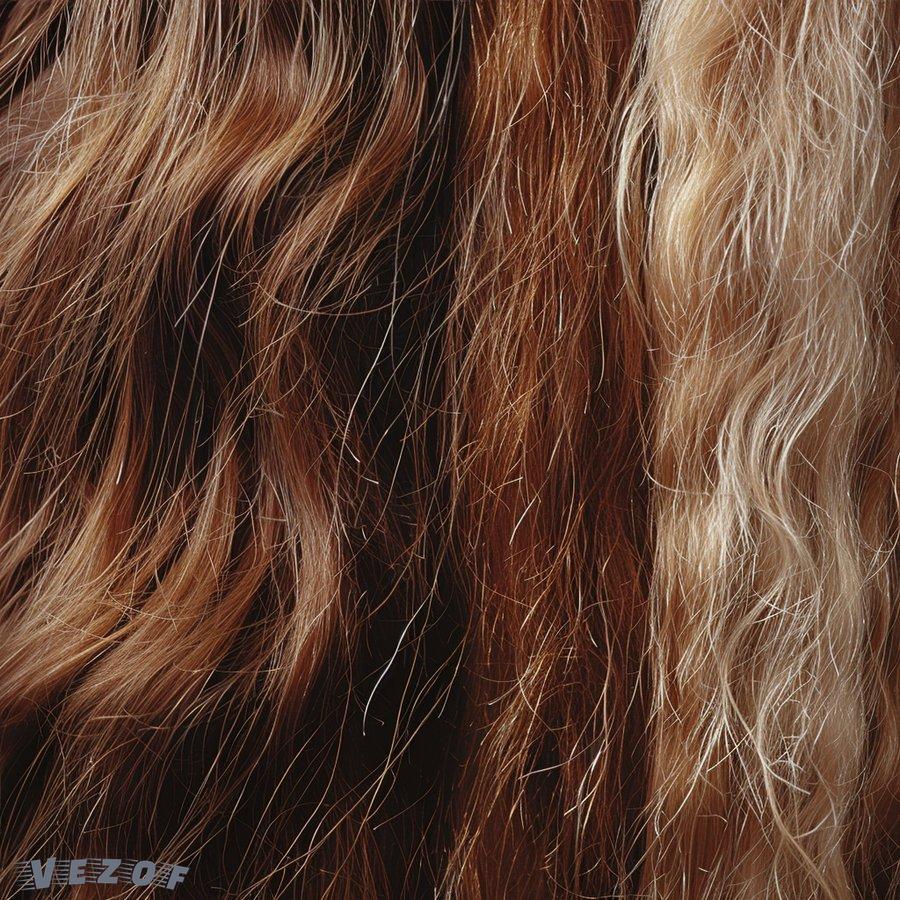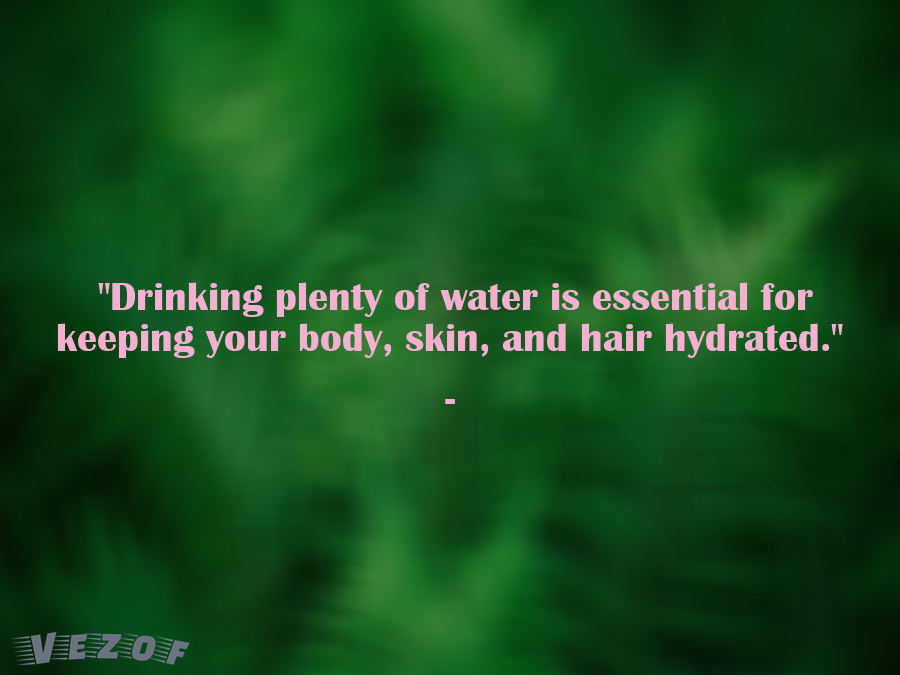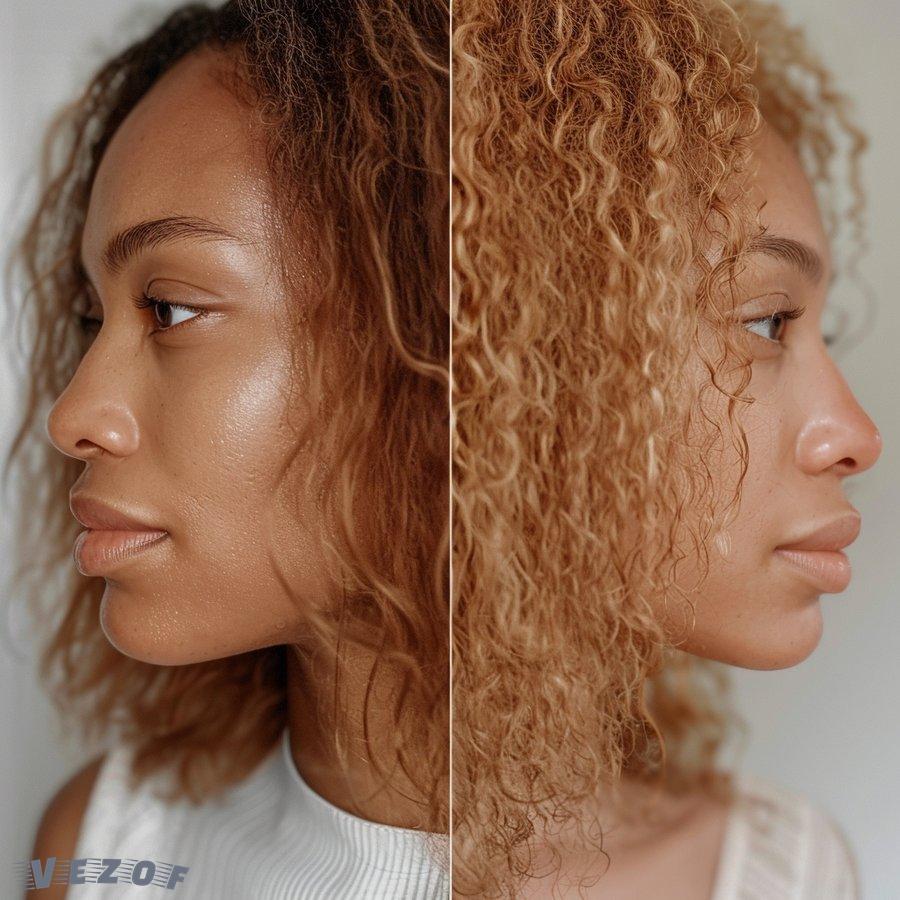As we get older, many of us start to notice changes in our hair’s texture, fullness, and moisture levels. Aging hair tends to become drier, more brittle, and harder to manage. But with the right hair care routine and products, it’s possible to rehydrate your locks and restore a soft, healthy, youthful look.
In this guide, we’ll cover the causes of dry hair with age, how to tell if your hair needs more moisture, and the most effective ways to boost hydration from the inside out and the outside in.
What Causes Dry Hair As We Age?
There are several reasons why hair tends to get drier as we get older:
- Hormonal changes: As women go through menopause, estrogen levels decline which can lead to thinning hair that is more prone to dryness. Men also experience hormonal shifts with age that can impact hair moisture.
- Slower sebum production: The sebaceous glands in the scalp produce less of the natural oils that lubricate hair as we age. This reduction in sebum leaves strands more vulnerable to dehydration.
- Structural changes in the hair: Hair follicles shrink and the cuticle becomes more fragile and weathered over time, making it harder for hair to retain moisture.
- Medications: Some medications that are more commonly prescribed with age, like those for high blood pressure or cholesterol, can dehydrate hair as a side effect.
- Years of damage: Decades of heat styling, chemical treatments, environmental exposure, and the wear and tear of daily life can degrade the hair cuticle, allowing precious moisture to escape.
How Can I Tell If My Hair Needs Hydration?

If you’re wondering whether your aging hair could benefit from more moisture, look out for these telltale signs of dehydration:
- Increased frizz: If your hair is chronically frizzy and hard to tame, lack of hydration is often the culprit. Parched strands seek moisture from humid air, causing them to swell and frizz.
- Dullness: Well-hydrated hair has a healthy sheen, while dehydrated hair tends to look lackluster and dull.
- Rough texture: Hair that feels rough, brittle, and straw-like to the touch is a classic sign it needs more moisture.
- Tangling and knotting: Dry hair is more prone to tangling because the open cuticles snag on each other. If your brush is getting stuck, your hair probably needs a drink.
- Breakage and split ends: When hair is dehydrated, it becomes less elastic and more likely to snap and split. An uptick in broken strands and frayed ends is a red flag.
What Internal Factors Can Boost Hair Hydration?

While topical products can keep aging hair hydrated, there are also some internal factors that can help boost moisture from the inside:
Hydration: Drinking plenty of water is essential for keeping your body, skin, and hair hydrated. Aim for at least 8 glasses a day, more if you exercise or live in a dry climate.
Diet: Eating a balanced diet rich in hair-healthy nutrients can help your strands stay strong and moisturized. Some top foods for hydrated hair include:
- Fatty fish like salmon for omega-3s that nourish the scalp
- Nuts and seeds for vitamin E, which protects against oxidative damage
- Avocados for moisturizing healthy fats
- Sweet potatoes for beta-carotene that the body converts to vitamin A, which is essential for sebum production
- Eggs for biotin and protein to strengthen hair
Supplements: If you’re not getting enough of certain hair-loving nutrients in your diet, supplements can help fill in the gaps. Look for supplements formulated for aging hair that contain ingredients like:
- Biotin to boost keratin production
- Collagen peptides to provide building blocks for hair structure
- Omega-3 fatty acids to hydrate the scalp and hair
- Vitamins A, C, and E to promote healthy sebum and protect against damage
What Is a Good Gentle Cleansing Routine for Keeping Aging Hair Hydrated?
Washing your hair the right way is the foundation of any hydrating hair care regimen. As we age, it’s important to use a gentle cleansing routine that won’t strip away natural oils:
Frequency: Wash your hair no more than 2-3 times per week. Over-cleansing can dry out strands. The older and drier your hair, the less often you should shampoo.
Water temperature: Wash and rinse your hair with lukewarm or cool water. Hot water can dehydrate hair and aggravate the scalp.
Shampoo: Choose a sulfate-free, moisturizing shampoo designed for dry or aging hair. Look for ingredients like:
- Coconut oil to penetrate the hair shaft and prevent protein loss
- Shea butter to moisturize and reduce breakage
- Hyaluronic acid to draw in moisture
- Aloe vera to soothe the scalp and hair
Technique: Focus shampoo on the scalp and roots, using the pads of your fingers to gently massage (not scrub). Be extra gentle on the ends, which are the oldest and driest parts.
Conditioner: Always use conditioner after shampooing to replenish moisture. Apply from mid-lengths to ends, avoiding the roots. Let it soak in for 2-5 minutes before rinsing thoroughly with cool water.
Deep conditioning: Use a deep conditioning mask or oil treatment once a week to give aging hair an extra dose of moisture. Look for rich formulas with nourishing oils like coconut, argan, or jojoba.
What Leave-in Products Can Replenish Moisture in Aging Hair?
In addition to your cleansing routine, using leave-in moisturizing products can provide an extra layer of hydration for dry, aging hair:
Leave-in conditioner: After washing, apply a lightweight leave-in conditioner or detangling spray to damp hair. This will add moisture, reduce tangles, and protect against heat styling. Look for formulas with glycerin or panthenol.
Hair oil: Sealing the ends of your hair with a few drops of oil can prevent moisture loss and add shine. Argan, marula, and coconut oils are especially hydrating. Avoid the roots to prevent greasiness.
Styling cream: For a moisturizing hold, work a dime-sized amount of styling cream through damp hair before air drying or blow drying. Choose a silicone-free formula to avoid buildup.
Refresher spray: On non-wash days, spritz dry hair with a refreshing moisture mist containing ingredients like aloe vera juice or coconut water. This will rehydrate and revive your style.
How Can I Protect Aging Hair From Further Damage?
Preventing your hair from becoming more dry and brittle is just as important as restoring lost moisture. Take these steps to protect your delicate aging hair:

Avoid heat styling: Put down the flat iron and curling wand as much as possible. Heat styling is incredibly drying and damaging to older hair. Embrace your natural texture or use heatless styling methods like braids and buns.
Use sun protection: UV rays can degrade the hair cuticle over time. Before spending time outdoors, mist hair with a UV protectant spray, wear a hat, or cover your hair with a scarf.
Sleep on a silk pillowcase: Cotton pillowcases can rough up the hair cuticle and cause tangles. Sleeping on a smooth silk pillowcase minimizes friction to protect aging hair.
Be gentle when styling: Avoid rough brushing, tight ponytails, and harsh chemical treatments like bleach and relaxers. Treat your hair like the delicate antique lace that it is.
Trim regularly: Getting a trim every 6-8 weeks removes dry, split ends before they have a chance to travel up the hair shaft and cause more damage.
What Salon Treatments Provide Extra Hydration for Aging Hair?
If your aging hair is extremely dry and damaged, an in-salon moisturizing treatment can provide a big boost of hydration:
Deep conditioning treatment: Most salons offer deep conditioning treatments that are left on the hair for up to 30 minutes. These use high-powered ingredients to penetrate the hair shaft and restore moisture from the inside out.
Glossing treatment: A clear or tinted gloss can be applied at the shampoo bowl to seal the hair cuticle, add intense shine, and deeply moisturize. The effects typically last up to 4 weeks.
Scalp treatment: A healthy scalp is key for keeping hair hydrated as you age. Many salons offer nourishing scalp treatments that balance oil production, exfoliate, and moisturize the scalp to create an optimal environment for healthy hair growth.
What Hydration-Damaging Habits Should I Avoid for Aging Hair?
In addition to taking steps to actively moisturize your hair, it’s important to avoid common habits that can dehydrate aging hair:
Over-washing: Shampooing too frequently strips the scalp of natural oils and dries out the hair. Try to extend the time between washes as much as possible, using dry shampoo in between if needed.
Rough towel drying: Vigorously rubbing your hair with a regular towel creates friction that roughens up the cuticle. Instead, gently squeeze out excess water and pat dry with a microfiber towel or old t-shirt.
Alcohol-based products: Many conventional hairsprays, gels, and mousses contain drying alcohols that can zap moisture from the hair. Opt for alcohol-free formulas whenever possible.
Chlorine and saltwater: Regularly swimming in chlorinated pools or the ocean can dry out your hair. Before taking a dip, saturate your hair with clean water or apply a protective leave-in conditioner.
Smoking: The toxins in cigarette smoke can damage the hair follicles and cause premature graying and thinning. Quitting smoking may help keep your hair more hydrated and healthy as you age.
How Can I Rehydrate Aging Hair Overnight?
For an intensive overnight moisture boost, try one of these easy hydrating hair treatments:
Coconut oil pre-poo: Before bed, massage a few tablespoons of coconut oil into your scalp and hair, focusing on the ends. Cover with a shower cap or plastic wrap and let it sink in overnight. In the morning, shampoo and condition as usual. The coconut oil will deeply penetrate to add moisture.
Aloe vera mask: Mix together equal parts aloe vera gel and coconut oil. Apply to damp hair from roots to tips, then cover with a shower cap. Leave on overnight, then rinse out in the morning and style as usual. The aloe will soothe the scalp while the coconut oil moisturizes.
Overnight deep conditioner: Apply a generous amount of your favorite deep conditioner or hair mask to damp hair. Comb through with a wide-tooth comb, then twist hair up into a loose bun. Cover with a silk scarf and go to sleep. In the morning, rinse hair thoroughly, then style. Your strands will drink up the extra moisture.
With a consistent moisturizing hair care routine, nourishing products, and overnight treatments, it’s possible to replenish hydration and restore a youthful look and feel to aging hair. By taking a gentle, targeted approach to cleansing, styling, and protecting your delicate strands, you can fight dryness and damage to reveal softer, shinier, more manageable hair at any age.